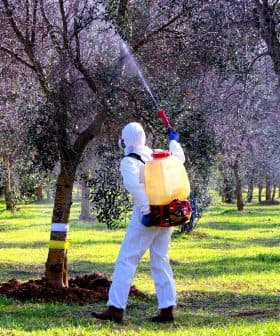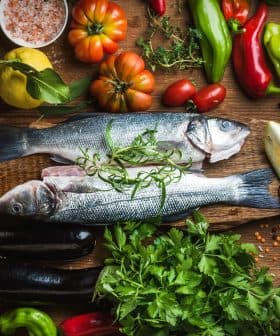Research Shows the Role of Polyphenols in Inhibiting Cancer Metastasis

Scientists have explored the anti-angiogenic properties of oleocanthal and oleacein, compounds found in extra virgin olive oil, to inhibit the growth of new blood vessels crucial for tumor development. The study suggests that these compounds could be used as anti-angiogenic agents in cancer therapy and other health concerns, with potential benefits extending beyond cancer treatment.
Scientists from the Biomedical Research Institute of Málaga and the Nanomedicine Platform have published a study exploring the role of oleocanthal and oleacein in modulating angiogenesis, the formation of new blood vessels, which is directly related to the progression of different types of tumors and the metastasis of cancer.
Oleocanthal and oleacein, secoiridoid-related phenolic compounds, are found in extra virgin olive oil. Both compounds are known for their antioxidant and anti-inflammatory properties and have been the subject of much scientific investigation.
Secoiridoids
Secoiridoids are a class of natural products that are derived from monoterpenes. They are secondary metabolites commonly found in plants, especially in the Oleaceae family, which includes the olive tree. These compounds often possess a wide range of biological activities, including anti-inflammatory, antioxidant, and anticancer properties.
Oleuropein and ligstroside, for example, are secoiridoids found in olive leaves and olive oil. These compounds are believed to contribute to the health benefits of the Mediterranean diet, which includes regular consumption of olive oil. They play a role in the cardioprotective and anti-inflammatory properties of olive oil.
However, prior research into their effects on angiogenesis was limited. The new study seeks to address this gap by exploring the anti-angiogenic properties of the compounds, both in vitro and in vivo.
Angiogenesis, the growth of new blood vessels from existing ones, is crucial for solid tumor growth and survival.
See Also:Health NewsTumor angiogenesis involves the development of blood vessels into the cancerous mass to supply nutrients and oxygen, supporting tumor growth and metastasis. Angiogenesis inhibitors are considered a means of complementing other therapies and preventing malignant tumor development.
Anti-angiogenic therapy, while not a cure, is effective in destroying tumors because vascular supply is essential for their growth.
This approach confers certain advantages compared to non-specific methods, such as chemotherapy and radiotherapy, by reducing toxicity and drug resistance and providing a less toxic, long-term tumor treatment.
Angiogenesis involves several stages, and disrupting any one step can thwart the process. Oleacein and oleocanthal were found to inhibit endothelial cell (the cells that line the internal walls of blood vessels) invasion, correlating with a decrease in MMP‑2 activity, an enzyme that degrades the extracellular matrix, which is crucial during angiogenesis.
Through a test involving the formation of blood vessel-like structures on Matrigel, the researchers showed that oleacein and oleocanthal interfere with the formation of tubular structures by endothelial cells in a dose-dependent manner. Even at low micromolar doses (non-toxic for such cells), the inhibition exceeded 50 percent.
Notably, these compounds did not affect pre-existing tubular structures, implying that they disrupt the formation of new vessels via angiogenesis without affecting established ones. This feature makes them more suitable as anti-angiogenic drugs are safer for existing, well-established blood vessels.
The results suggest the potential of oleocanthal and, particularly, oleacein as anti-angiogenic agents.
See Also:Oleocanthal, Oleacein Linked to Improved Outcomes in Obesity and PrediabetesThe researchers believe that while further pre-clinical and clinical studies are warranted, these findings open new avenues for research into developing therapeutic strategies involving these natural compounds.
They also believe that the potential benefits of oleacein and oleocanthal extend beyond cancer therapy, making them intriguing candidates for addressing many angiogenesis-related health concerns such as psoriasis, arthritis, blindness and numerous rare diseases.
“Oleacein and oleocanthal have been proposed as good candidates for angioprevention and as a basis for future studies modulating angiogenesis in clinical interventions, as well as functional claims of interest to the food industry for their health benefits,” said Ana Dacil, the study’s lead author.
She also noted that this is attractive to the industry commercially due to the growing awareness of extra virgin olive oil as a functional food.
“This type of study reinforces the health benefits of extra virgin olive oil, making it one of the main foods that sustain our Mediterranean diet and helping in the prevention and development of various diseases,” said Miguel Angel Medina, a professor of biochemistry and molecular biology at the University of Málaga.
While the concentration of phenolic compounds in extra virgin olive oil varies according to several factors, such as the region of origin, the olive cultivar, the stage of fruit ripening, and the extraction process, the average daily consumption of 40 milliliters (approximately four tablespoons) of high-quality extra virgin olive oil contains a minimum of 10 milligrams of oleacein and around 25 milligrams of oleocanthal.
Oleocanthal, responsible for many of the spicy and bitter notes of high-quality oils, has anti-inflammatory properties and anti-carcinogenic potential, and has been shown to confer protection against various neurodegenerative diseases such as Alzheimer’s.
Oleacein, for its part, possesses antioxidative, hypotensive and anti-inflammatory properties. The polyphenol has shown beneficial activity on the cardiovascular system. Studies have suggested that the compound may even aid the body in repairing tissues damaged by infarction – tissue death due to inadequate blood supply.










